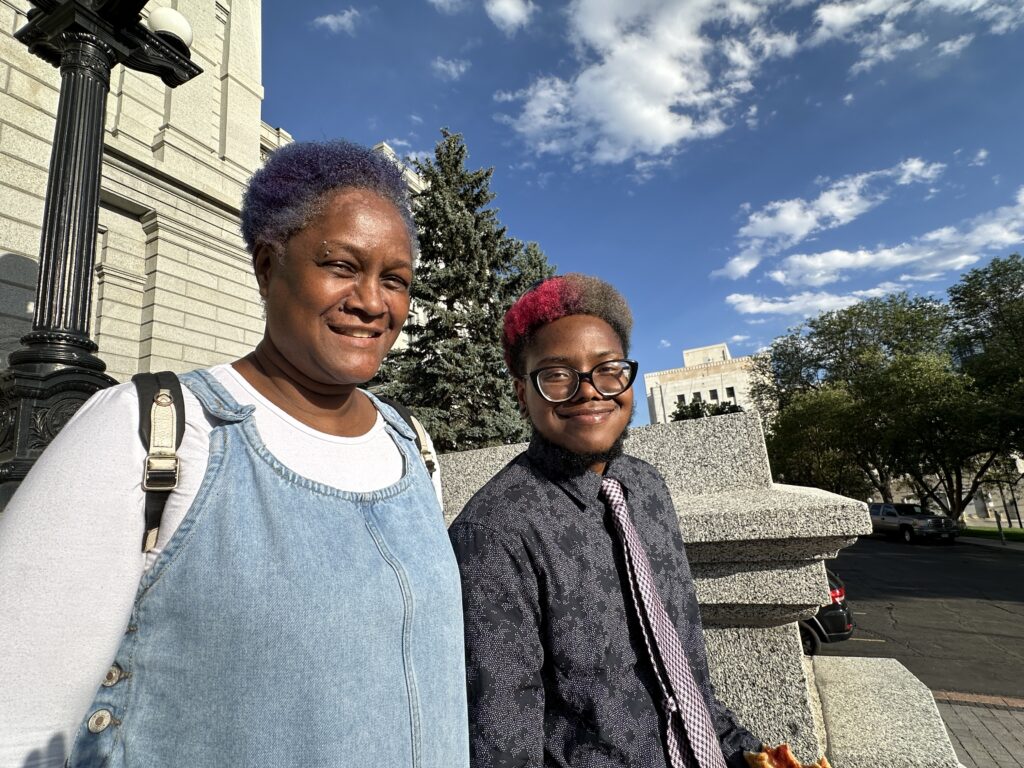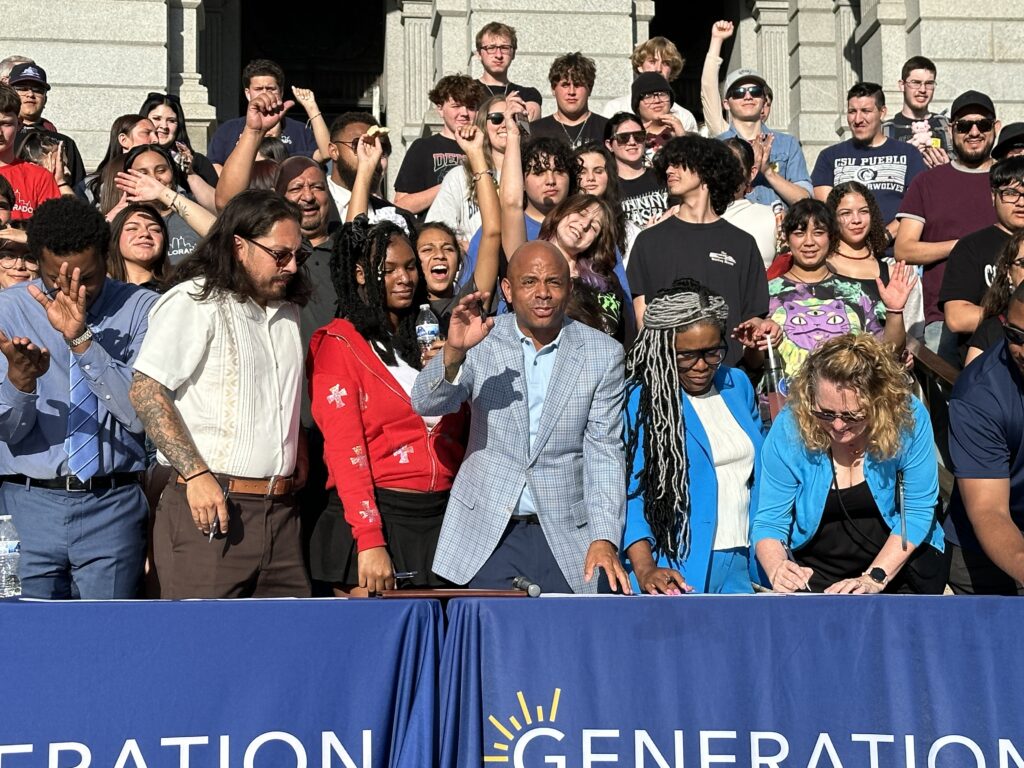
Colorado is the first state in the nation to offer a youth engaged with the justice system a “bill of rights” so that even if a student gets in trouble, they have a pathway towards completing their education.
The new law aims to eliminate barriers to finishing school. Last year alone, nearly 6,500 Colorado youth entered the justice system. They had less than a 20 percent chance of earning a diploma.
This week, students, parents, educators and legislators took part in a ceremonial bill signing on the west steps of the State Capitol.
“A lot of us make bad decisions,” said State Sen. James Coleman, one of the bill's sponsors. “But in the end, our students still matter ... All students matter.”
Students from several alternative high schools played a big role in lobbying for the bill’s passage.
“Schools have pushed a lot of students out recently in the past 10 years, including myself,” said J.J. Reid, who spent several days in a juvenile detention facility. He knew how hard it would be to enroll in a traditional public school, but he went on to become student body president at an alternative high school. “Allowing our schools to be more of a welcoming place will affect our students in so many good ways.”
Advocates say the bill was long overdue.
“It wasn't that anyone was really trying to be nefarious, it's just that there's so much confusion that exists between the education system and the justice system that people are kind of making up what they need to do about it because there's not enough guidance,” said Wendy Loloff Cooper, CEO of Generation Schools Network, a nonprofit that partners to create healthy school ecosystems.
GSN conducted a two-year pilot to collect data on school disruption from students, educators and families. The study showed if supports are in place and students get help navigating school after being engaged with the justice system, they can be successful.

“It's a little too late for my son”
The ceremony was bittersweet for Diva Small, a mother and teacher who showed up to the ceremony after learning about the bill.
She said her son bounced around from school to school in the Cherry Creek School District, struggling with several mental health conditions and ADHD. He had an IEP, or individualized education plan, a federally-mandated plan designed to provide students with special needs specific support. But Small discovered at her son’s last school in 2021, staff weren’t aware that he had an IEP.
“His IEP was very, very specific. And if you didn't follow it, then he would fail, which is exactly what happened.”
Small doesn’t understand how the school didn’t know about the IEP. After her son returned to school after lunch one day with two other students smelling of marijuana, he was singled out and expelled, she said. Her son had previously been suspended.
Her son’s mentor at Turning Point of the City, Lucas Rosentrater, said the teen had been suffering with the loss of a family member and mental health issues. With each suspension he got further behind in school, “and so then that kills your momentum,” Rosentrater said. More drug use followed.

Rosentrater said the person who initiated the expulsion was a new staff member at the school who was trying and cared.
“He just didn't have the skillset to know ‘This is serious, this isn't’ and he didn't know how to ask the next question. And he quickly went through an expulsion process.”
From that point, Small’s son gradually unraveled. He is currently in prison for nonviolent offenses.
“This bill could have helped save him because it literally tells educators what they are to do with justice-involved students,” said Small. “It's a little too late for my son. But I'm hoping that this bill really helps those students who are in the justice system now to avoid that school-to-prison pipeline.”
Advocates had hoped the bill would mandate mandatory training for some school officials about legal issues involving justice-engaged youth and the resources available, but that didn’t make it into the bill’s final version.

What will the new law do?
The law lays out rights for K-12 students who are involved with the juvenile or criminal justice system, also known as “justice-engaged” students.
Schools must post on their websites the services and resources available for justice-engaged students, including the contact information for a designated point person. Once a student is eligible to enroll, the school must help ensure a pathway to graduation and access to mental health supports if appropriate and available.
After a youth is ticketed or arrested and after they are released from the juvenile justice system, the student must be provided with a hotline number for assistance. The department of education will eventually maintain the hotline for students, families and caregivers, as well as for school and justice system staff. But GSN has applied for a grant to stand up the hotline to begin collecting data in January.
Some other rights include:
- Enrollment in school not later than 10 business days after a request is made to the school, as long as the school determines the student is eligible for enrollment.
- Credit for course work completed while justice-engaged.
- Privacy when questioned about a crime, diversion or probation.
- With evidence, be evaluated for giftedness.
- Participation in school activities or career pathways in accordance with state board of education rules.
- Be provided with alternative solutions to general education when appropriate.
The department of education also must track graduation rates for justice-involved youth. Schools retain the right to suspend or expel a justice-engaged student according to applicable laws.
“All you all need from us is to do what we said we were going to do,” bill sponsor State Rep. Jennifer Bacon told dozens of youth gathered at the Capitol. “The education system is supposed to educate all kids. Period.”









